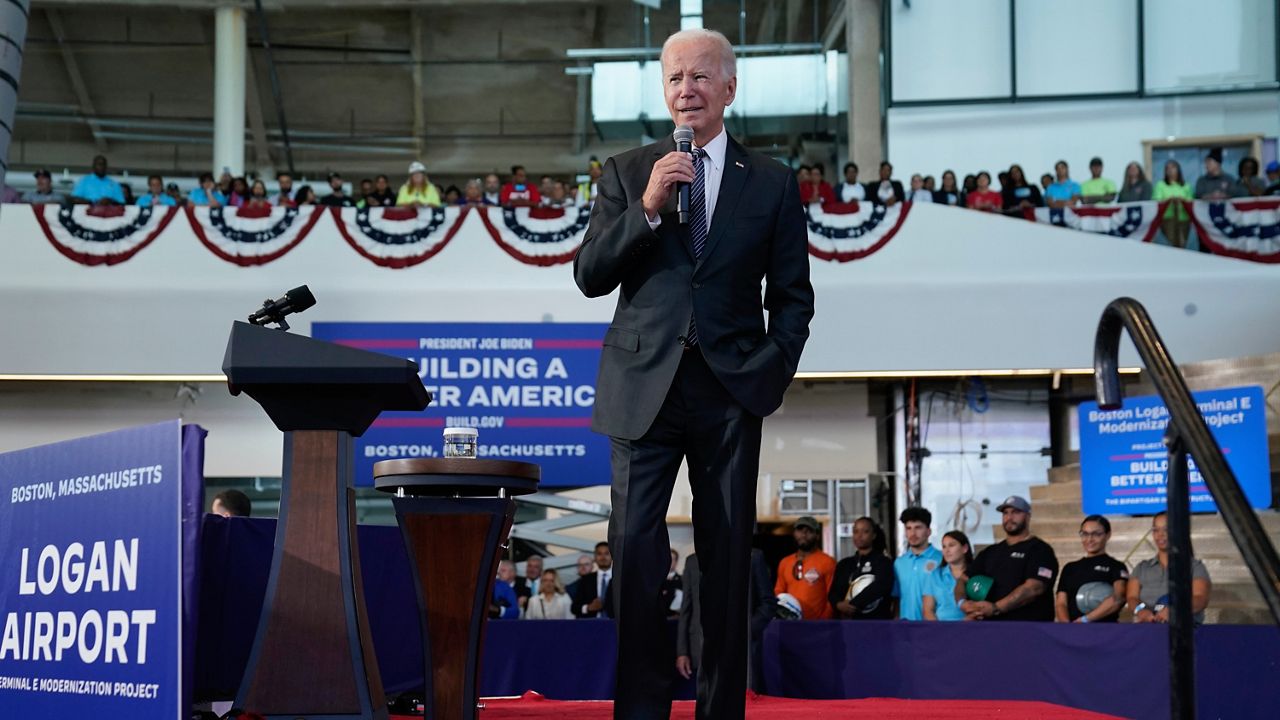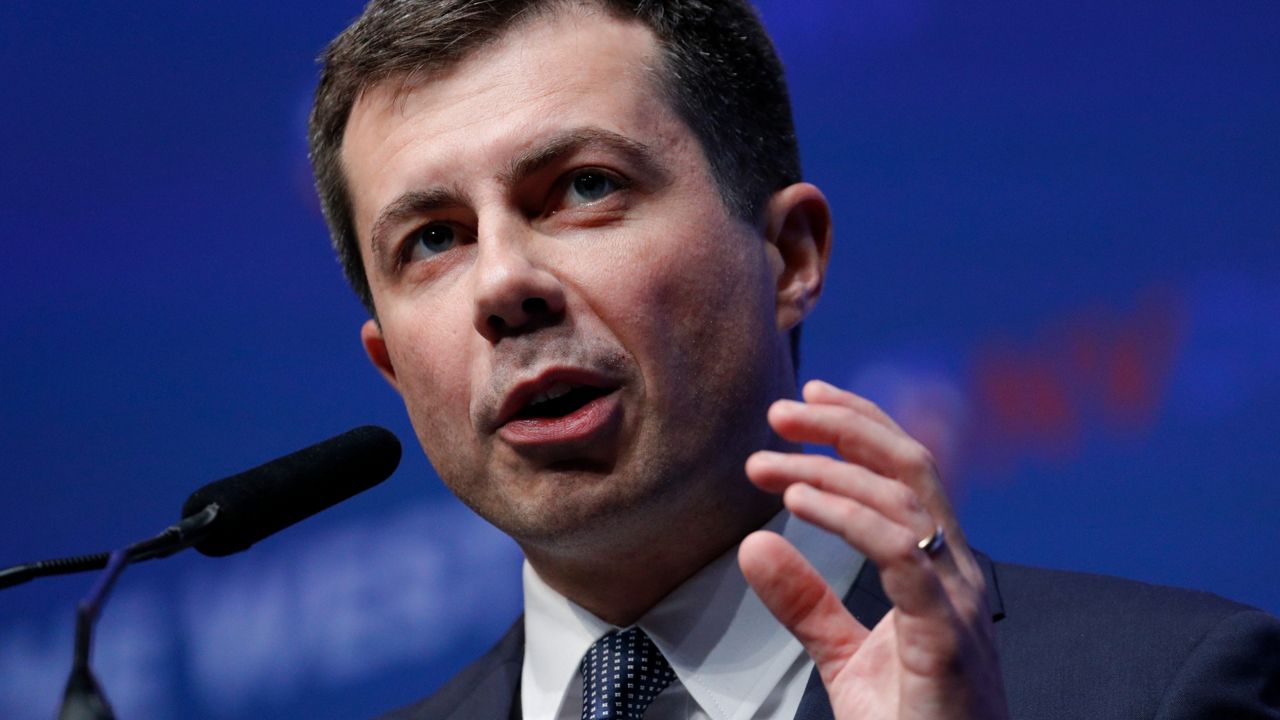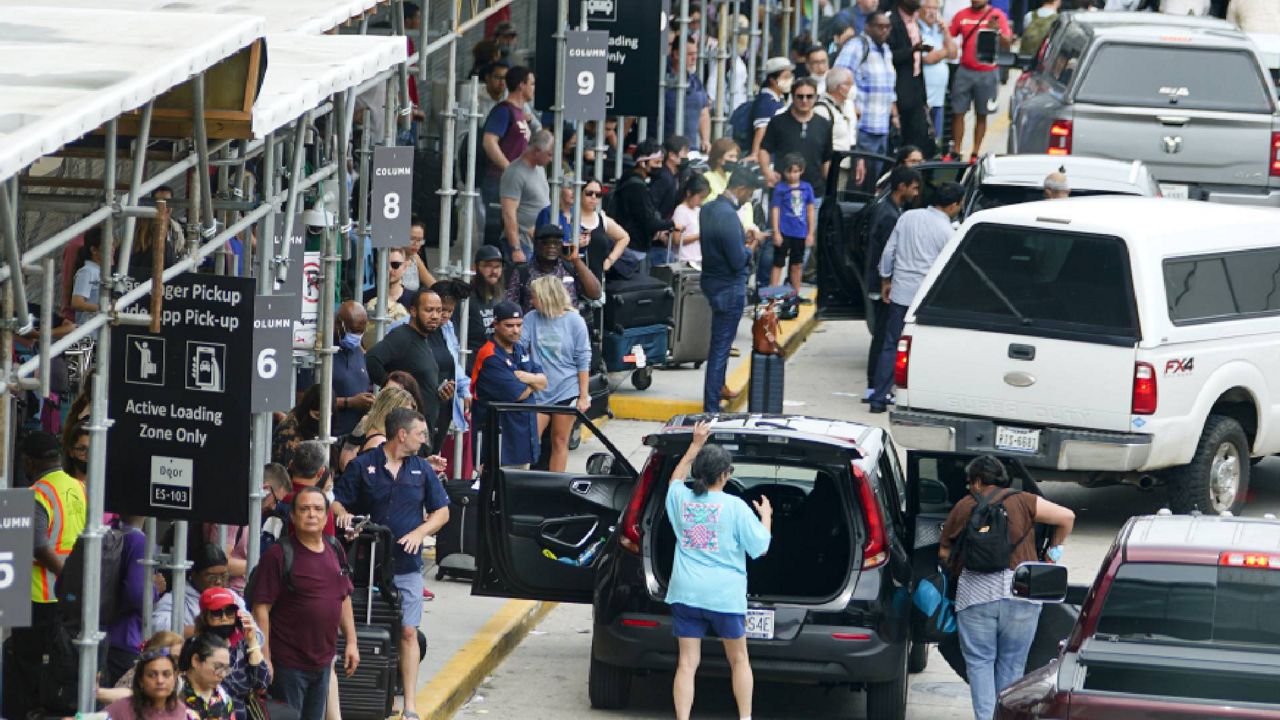More than 130 million Americans — or roughly half of American adults — are expected to travel for the holidays this year, according to a recent NerdWallet survey.
But all might not be merry and bright for intrepid travelers taking to the skies if Congress does not extend funding for the Federal Aviation Administration, which expires at the end of the year. If the agency isn’t reauthorized, the hiring of air traffic controllers, new spending for safety improvements and the adoption of new passenger protections would stop.
“It's important for there to be stable funding, predictable funding, and really try to protect our aviation system from some of the political games that are playing out on Capitol Hill right now,” Transportation Secretary Pete Buttigieg said in a recent interview with Spectrum News.
“The U.S. aviation system accounts for about 5% of the entire American economy,” he explained. “Making sure that air travel is safe, making sure that the growth in air travel is supported, these are all things that are at stake in FAA reauthorization. It can also have a big effect on the passenger experience.”
The Biden administration has made protecting passenger rights a key priority, including proposing new regulations earlier this year that would mandate airlines compensate passengers and cover meals and hotel rooms if they’re stranded for reasons within their control — in addition to the cost of a refunded ticket. The White House also rolled out a Department of Transportation dashboard that tracks airline compensation in the event of cancellations and delays.
“We've expanded passenger rights with we've been able to do a lot with the legal framework we have, but Congress can make it happen so much more quickly, and it would be much better to get that action sooner rather than later,” Buttigieg said.
Another key priority for the Biden Administration — and looming issue should the FAA’s authorization expire — is the hiring of air traffic controllers. The agency hired 1,500 air traffic controllers this year, but it’s estimated that 1,400 current employees will leave their jobs by the end of next September.
“With the current staffing levels, capacity is reduced,” said Rich Santa, president of the National Air Traffic Controllers Association, a union that represents nearly 20,000 workers. “Six-day work weeks and 10-hour days are not sustainable. One-man sectors are not sustainable. We need more people in our facilities.”
Buttigieg called the hiring of air traffic controllers “a complicated problem with a very simple reality.”
“We need more air traffic controllers,” he said, citing the need to stay ahead of retirements. “So we're hiring more air traffic controllers. The total number of controllers went down year after year after year, it's finally going up. Now we need to accelerate how it goes up.”
“It's one of the reasons why we think it's important for there to be stable funding, predictable funding, and really try to protect our aviation system from some of the political games that are playing out on Capitol Hill right now,” he continued. “I'm very concerned about some of the budget cuts that the House Republicans have proposed that would actually cut back on air traffic control at a time when we need to be doing more not less with technology, and certainly with hiring and training.”
Buttigieg said he is in touch with Republicans and Democrats alike in both the House and Senate, and while his agency wants to respect their process to negotiate, the Biden administration has “a strong perspective” on passenger protections and increasing the air traffic control workforce.
“We believe strongly in adding some of these passenger protections and other provisions that will help us grow the air traffic control workforce, fund the modernization that is needed, because technology is a big part of this too,” he said. “Everything that goes into making it continue to be the case that flying is the safest way to travel in this country, and that our airspace continue to be the safest, most complex aviation system in the world.”
Buttigieg and other travel experts warn that without FAA reauthorization, airports cannot take the recommended steps to make runways safer and avoid the recent spate of close calls travelers have seen on tarmacs.
“We wouldn't really be able to see action on any of those recommendations, things like runway warning systems at certain airports or different kinds of automated systems to help air traffic controllers keep track of planes better,” warned David Slotnick, senior airline business reporter for ThePointsGuy.
“It's very important that we never take the aviation safety record of this country for granted,” Buttigieg said. “The fact that we've gone more than 10 years without a fatal airliner crash doesn't mean we've arrived at some kind of safety destination, it means we need to accelerate the journey and take close calls and things that could have been an incident just as seriously as we would take the aftermath of an actual incident. And that's exactly what we're doing.
“Whether we're talking about technology, whether we're talking about procedures and tactics, or whether we're talking about staffing and workforce, each of those is getting action to keep up with the changes that are happening in a very complex airspace,” he added.
The House has passed a bill to reauthorize the FAA. The Senate has not yet taken action.
Both the House and Senate versions of the bill would prohibit airlines from charging fees for families to sit together.
The bill passed by the House would require airlines to maintain a website for complaints from travelers.
The version under consideration in the Senate would require airlines to offer refunds for domestic flights delayed three hours or more and international flights delayed six hours or more. It would also require airlines to display a link to a refund page at the top of their website and to disclose all fees before booking.
The Senate still needs to pass its version of the bill before the two chambers can reconcile their differences and send it to President Joe Biden’s desk. Sticking points, like pilot training requirements and retirement age, still remain.








